The Seattle Sounders Football Club scores big with wearable technology
A huge advantage for the MLS' most valuable franchise
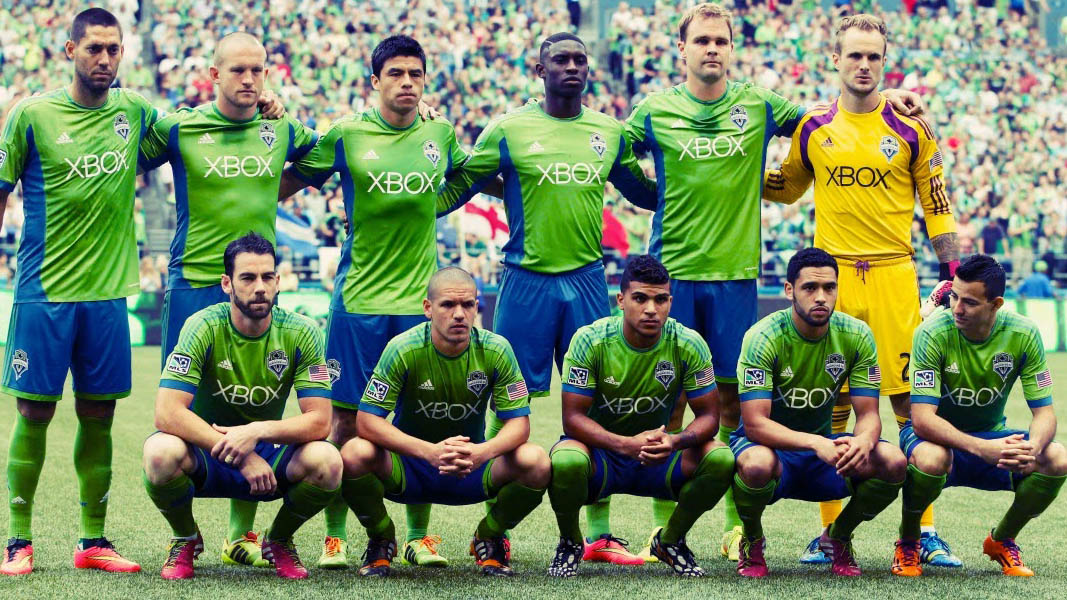
More than 26 million viewers in the US tuned in to watch Germany defeat Argentina in the 2014 World Cup Final. The match, which featured no American-born players, touchdowns, home runs or three-pointers, was the most-watched soccer match in US history.
The 120-minute showdown was the culmination of a month-long watershed period in American soccer fandom. But was it enough to propel Major League Soccer (MLS), the US and Canadian professional soccer league, to the forefront of the American sporting landscape? Probably not.
However, all indications reveal that MLS is here to stay, with average attendance eclipsing 18,000 fans per game and the average franchise valued at $103 million, according to data released by Forbes (roughly seven months before the start of the 2014 World Cup).
The Seattle Sounders
The most financially successful of MLS' 19 franchises is the Seattle Sounders Football Club. The Sounders played their inaugural match in 2009, and immediately became the most popular MLS team, drawing 44,038 attendees per home game, an average of 50-65% more than the second-most popular team, the LA Galaxy.
The Sounders currently lead MLS' Western Conference, and they're led by American-born star players Chad Marshall and Clint Dempsey, the latter of whom is captain of the US Men's National Team. The Sounders are also the league's most valuable franchise, estimated to be worth $175 million.
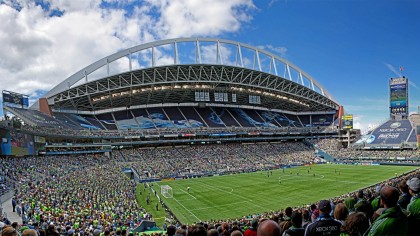
The Sounders don't just lead the MLS in attendance, talent and value. They're also at the forefront of technological innovation. Much like Major League Baseball's Oakland Athletics used data analysis - or "sabermetrics" - to field competitive teams in the early 2000s, the Seattle Sounders are capitalizing on the advent of wearable technology to evaluate player performance, conditioning and signability.
Tableau and wearable tech
The team has partnered with business intelligence and analytics company, Tableau, since 2013 to visualize data generated from wearable technology to track player movements and health.
Are you a pro? Subscribe to our newsletter
Sign up to the TechRadar Pro newsletter to get all the top news, opinion, features and guidance your business needs to succeed!
The technology helps the team determine player effectiveness, GPS positioning on the field, speed and distance traveled, as well as off-field data like player sleep patterns.
Sounders performance manager David Tenney leads a team of three responsible for analyzing the data and creating visual reports, which the team's coaches use to make decisions about training, health and performance.
Although the players aren't allowed to wear the technology during games, Tenney says the information gleaned during workouts is enough to help improve the team's strategy, conditioning and roster development.
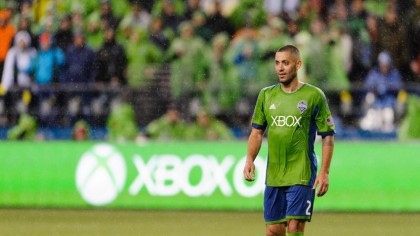
How it works
During each practice, players wear a heart-rate monitor and GPS unit that Tenney says is about the size of a cell phone. The unit sits in a training vest between the players' shoulder blades. The two devices provide Tenney with data on how much the athletes run, how much they cut during plays, and how hard their bodies have to work to complete different mechanical loads.
"We can get an efficiency score of types," Tenney says. "A good score means your mechanics are terrific and your internal cost of doing that work is relatively low. To use an analogy, we know which players have a big engine but don't need as much gas."
As a result of the work Tenney has done with Tableau (including data analysis done prior to installing wearable devices onto training vests) the Sounders redesigned their pre-season training regimen to adjust the distance each player covered prior to the start of the season in order to limit injury risk.
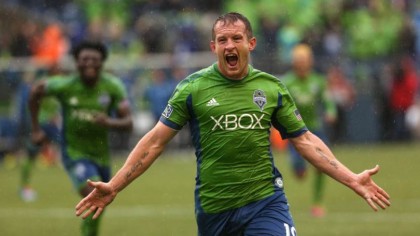
"In endurance sports, there is this idea of an aerobic base, but it can be difficult to apply the concept of an aerobic base in a team setting," Tenney explains. "Not all players have the same sweet spot, and not all weeks hold the same level of importance. By knowing these details, we have seen some of the health and fitness of our players improve. You know how far to push players without getting them hurt and you know which specific weeks in pre-season are highly significant for injury resistance."
Not all players are created equal
Tenney also says the technology enabled the team to discover that certain position were overloaded and other positions were underloaded based on the exercise they were required to perform.
"Sometimes, I find that coaches believe that all players are normally loaded adequately across all training sessions at the professional level, but we found this not to be true."
The technology, and the subsequent reports, informed the coaches of the actual loading on different muscular, cardiac, and neuromuscular systems for each individual player.
Moving forward, Tenney says the technology will better allow the Sounders to profile the types of players it should avoid signing based on the team's training regimen and playing conditions.
"Our coaches prefer to train intensely as often as possible. We also play more artificial grass games in the league than almost every other team. There are certain athletes that cannot tolerate these types of factors. We've been able to use our data to inform us more on players that we shouldn't sign more than players that we should sign."
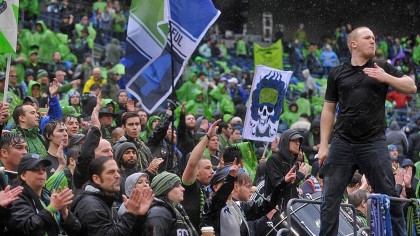
As for the players, Tenney says they've been receptive to the technology because it makes them more aware of their performance and endurance. "Thanks to our data gathering and analysis, a star player like Clint Dempsey can now tell when his total distance and velocity has decreased in a game. He has the awareness to know what an 11,000-meter game feels like."
Whether or not this information will help the Sounders win their first ever MLS Cup in December remains to be seen. However, improved player data, advanced training regimens, and a rabid, growing fan base, can only help to improve excitement for American soccer. If soccer does become a major sport in America, it's likely the Sounders, Clint Dempsey and Tableau will be leading the way.